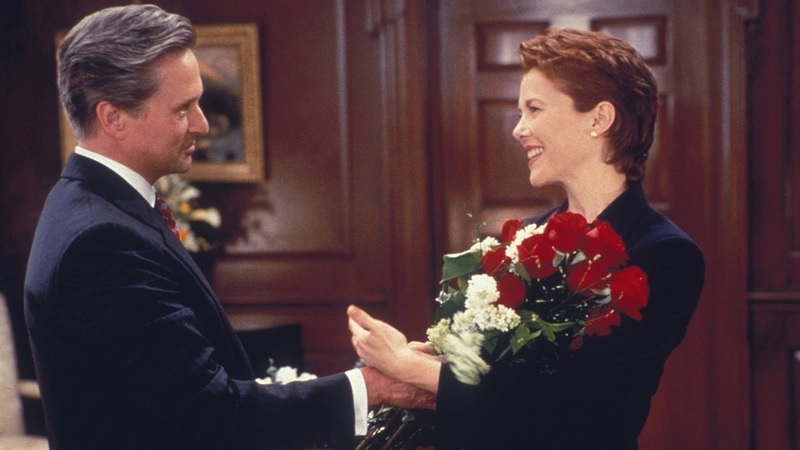
 |
| Photo © 1995 Universal Pictures, Castle Rock Entertainment |
| Academy Award Nominations: | |
| Best Original Score (Musical/Comedy): Marc Shaiman | |
| Golden Globe Nominations: | |
| Best Picture (Musical/Comedy) | |
| Best Director: Rob Reiner | |
| Best Actress (Musical/Comedy): Annette Bening | |
| Best Actor (Musical/Comedy): Michael Douglas | |
| Best Screenplay: Aaron Sorkin | |
| Permalink | Home | 1995 | ABC |